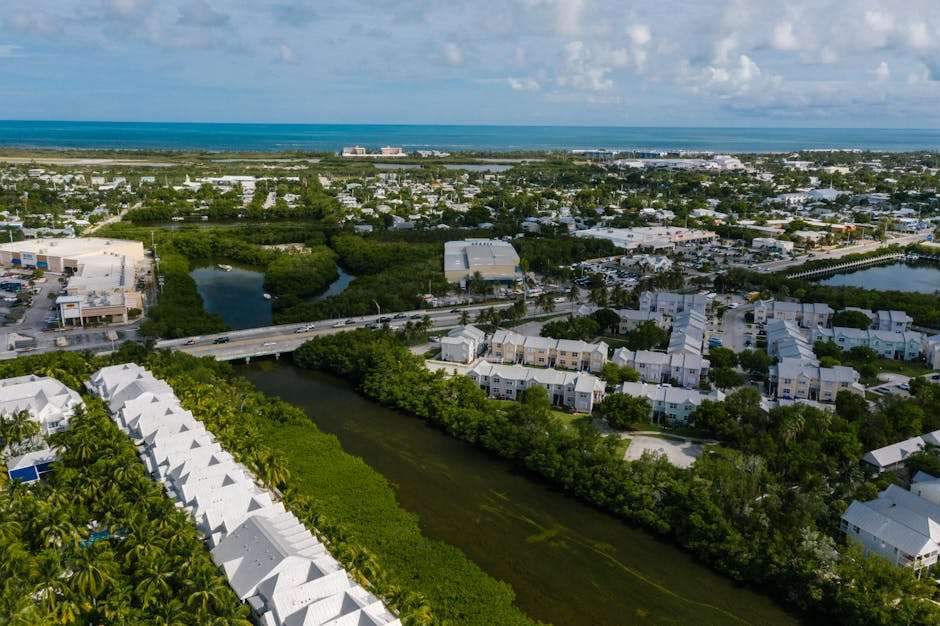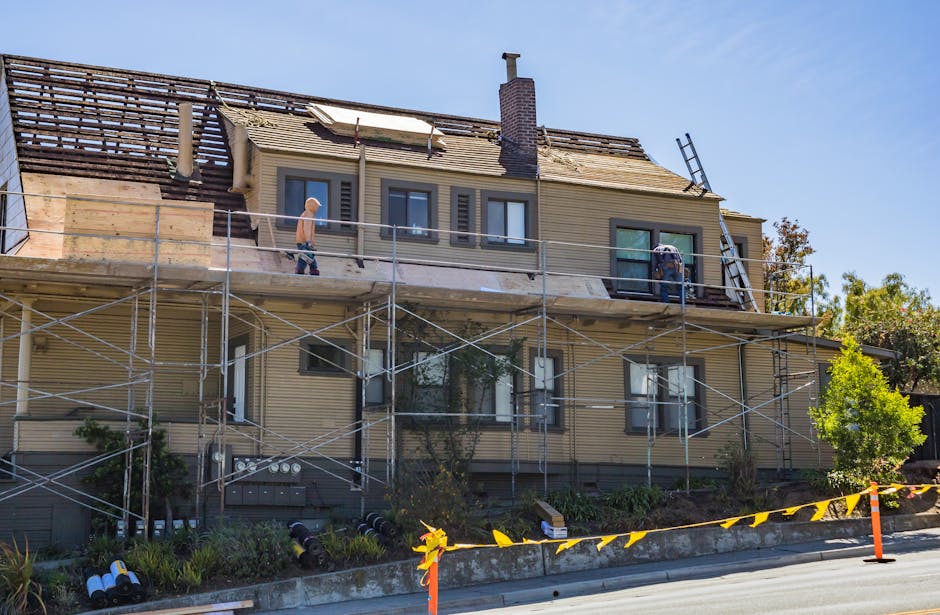Roofing Risks and Rewards: A Guide to Contractor Insurance

Insurance roofing contractors face unique challenges, especially in Florida—a state known for its unpredictable weather and stringent building codes. Securing the right contractor insurance not only safeguards your business from potential financial pitfalls but also improves trust with your clients. Here’s what you need to know:
Key Risks: Florida’s weather conditions, like hurricanes and heavy rains, lift the risk for roofing contractors. Damage from these natural events can lead to costly repairs or liabilities.
Essential Coverage: General liability insurance is crucial. It protects against third-party injuries and property damage, which are common concerns in the roofing industry.
Legal Compliance: In Florida, specific insurance requirements must be met to legally operate as a roofing contractor. This includes workers’ compensation and commercial auto insurance.
Roofing insurance is not just a protective measure—it’s a smart business decision that can offer peace of mind. As Paul Schneider, with experience in insurance roofing contractors, I understand the complexities you face. My team at Schneider and Associates Insurance Agencies is here to help steer these challenges with personalized solutions, ensuring your business remains protected and compliant.
Let’s dig into the different aspects of contractor insurance and understand what makes it essential for your business in Florida.
Insurance roofing contractors vocab explained:
Understanding Roofing Insurance
When it comes to insurance roofing contractors in Florida, understanding the different types of coverage is crucial. Let’s break it down:
General Liability Insurance
General liability insurance is the cornerstone of any roofing contractor’s insurance plan. It covers third-party injuries and property damage. Imagine a scenario where a falling tool injures a bystander or damages a client’s property. General liability insurance steps in to cover medical expenses or repair costs, protecting your business from financial strain.
In Florida, a state prone to unpredictable weather, having this coverage is not just advisable—it’s essential. The state’s weather can lead to accidents, and having the right insurance ensures you’re not left paying out of pocket.
Workers’ Compensation Insurance
Roofing is a high-risk job, and workers’ compensation insurance is mandatory in Florida. This insurance covers medical bills and lost wages if an employee gets injured on the job. With roofing accidents being relatively common, this type of insurance protects both your employees and your business.
A workers’ compensation policy in Florida typically costs around 8.87% of your roofing labor costs, plus upfront costs. It’s an investment in your team’s safety and your business’s longevity.
Commercial Auto Insurance
If your roofing business uses vehicles for transportation, commercial auto insurance is a must. Personal auto insurance policies do not cover vehicles used for business purposes. Commercial auto insurance covers damages to your vehicle and any injuries or damages you may cause while driving for business.
Florida’s unique landscape and weather conditions make this coverage particularly important. Whether you’re transporting materials or traveling to job sites, having the right insurance mitigates risks associated with accidents.

Understanding these types of coverage is the first step toward safeguarding your roofing business in Florida. Each plays a vital role in protecting against the unique risks you face. We’ll explore the essential coverage types in more detail and how they fit into your overall insurance strategy.
Insurance Roofing Contractors: Essential Coverage Types
When running a roofing business in Florida, securing the right insurance roofing contractors coverage is vital. Here are the key types of insurance that should be part of your strategy:
General Liability Insurance
General liability insurance is a must-have for roofing contractors. It covers third-party injuries and property damage. For example, if a worker accidentally drops a tool that injures someone or damages property, this insurance covers the costs. Given Florida’s frequent storms and unpredictable weather, having this coverage is crucial to protect against unforeseen accidents.
Inland Marine Insurance
Inland marine insurance might sound unusual, but it’s incredibly important for roofing contractors. This type of insurance covers tools and equipment that are in transit or stored off-site. If you’re moving roofing materials between job sites or storing them temporarily, inland marine insurance ensures they’re protected against theft, damage, or loss.
Consider this: a roofing contractor in Miami transports valuable tools to a new job. During transit, the tools are stolen. Inland marine insurance covers the loss, saving the business from significant financial hit.
Builder’s Risk Insurance
Builder’s risk insurance is essential during construction or renovation projects. It covers damage to the building under construction from events like fire, hail, or vandalism. In Florida, where hurricanes and severe weather are common, this insurance is particularly important.
For instance, if a hurricane damages a roof under construction, builder’s risk insurance covers the repairs. It’s a temporary policy, typically lasting the duration of the project, and ensures that the investment in the construction is protected.
These coverage types are not just optional—they’re essential for roofing contractors operating in Florida. Each type addresses specific risks, ensuring comprehensive protection for your business. We’ll dig into the costs associated with these coverages and what factors influence them in Florida.
The Cost of Roofing Insurance in Florida
Understanding the cost of insurance roofing contractors in Florida is crucial for managing your business expenses effectively. Let’s break down the average costs, factors affecting these costs, and the coverage limits you should be aware of.
Average Costs
In Florida, the average cost for roofing contractor insurance can vary significantly based on the type and extent of coverage. Generally, roofing liability insurance can range from $250 to $305 per month, translating to approximately $3,000 annually. For workers’ compensation, expect to pay around 8.87% of your roofing labor costs, with potential upfront costs of about $1,250. These figures provide a baseline, but actual costs can differ based on various factors.
Factors Affecting Cost
Several factors influence the cost of roofing insurance in Florida:
Business Size: Larger businesses with more employees typically face higher insurance premiums due to increased risk exposure.Location: Operating in areas prone to natural disasters, like hurricanes, can drive up insurance costs.Claim History: A history of frequent claims may result in higher premiums as insurers perceive a higher risk.Coverage Level: Higher coverage limits and additional policies, such as inland marine or builder’s risk insurance, will increase overall costs.
Coverage Limits
Setting appropriate coverage limits is essential to ensure adequate protection without overpaying. For general liability insurance, a common recommendation is a minimum of $1 million in coverage per occurrence and $2 million in total aggregate coverage. These limits help protect against significant claims related to property damage or bodily injury.
Builders’ risk insurance coverage is typically set as a percentage of the total construction cost. This ensures that if a project faces damages from events like fire or storms, the repairs are fully covered.
Understanding these costs and factors allows roofing contractors in Florida to budget effectively and secure the necessary coverage to protect their business. Next, we’ll explore the benefits of having comprehensive insurance coverage and how it can improve your business operations.
Benefits of Insurance for Roofing Contractors
Roofing contractors face unique challenges in their line of work, and having the right insurance coverage can make all the difference. Let’s explore the key benefits of insurance for roofing contractors and why it’s essential for your business in Florida.
Financial Protection
Accidents happen. Whether it’s a tool falling from a roof and injuring someone or unexpected damage to a client’s property, the costs can be significant. Insurance provides a financial safety net, covering these unexpected expenses and preventing potential financial ruin. For example, general liability insurance covers third-party injuries and property damage, while workers’ compensation takes care of employee injuries on the job. This protection ensures that one mishap doesn’t jeopardize your entire business.
Legal Compliance
In Florida, certain types of insurance are not just beneficial—they’re legally required. Workers’ compensation is mandatory for roofing contractors, ensuring that employees are covered for job-related injuries. Failing to comply with these legal requirements can result in hefty fines and legal issues. By having the right insurance, you ensure compliance with state laws, keeping your business operations smooth and uninterrupted.
Customer Trust
Insurance doesn’t just protect your business; it also builds trust with your clients. When potential customers know you have comprehensive insurance, it reassures them that you’re a responsible contractor who values safety and accountability. This trust can set you apart from competitors who might skimp on coverage. Moreover, many clients require proof of insurance before hiring a contractor, making it a critical component of your business credentials.
Having the right insurance coverage not only shields your business from financial risks but also ensures you meet legal obligations and build trust with your customers. Next, let’s dive into some frequently asked questions about roofing insurance to further clarify its importance and application.
Frequently Asked Questions about Roofing Insurance
When you’re a roofing contractor in Florida, understanding the ins and outs of roofing insurance is crucial. Here, we tackle some common questions to help you steer this essential aspect of your business.
What Kind of Roof is Best for Insurance?
When it comes to insurability, not all roofs are created equal. Metal roofs often top the list for insurance purposes. They are highly durable, fire-resistant, and can last up to 50 years or more, making them a favorite among insurers. Their longevity and resistance to weather damage mean fewer claims, which can translate to lower insurance premiums.


Fire-resistant materials are another key factor. Roofs made from materials like metal or clay tiles are less likely to catch fire, which insurers appreciate. This can lead to better insurance rates and easier policy approval.
How Much is Roofing Insurance in Florida?
The cost of roofing insurance in Florida varies based on several factors. On average, general liability insurance for roofing contractors can range from $250 to $305 per month. However, the total cost depends on the size of your business, payroll, and coverage limits.


Workers’ compensation is essential and typically costs 8.87% of your roofing labor costs, with additional upfront fees. This type of insurance covers medical bills and lost wages if your employees get injured on the job.
Commercial auto insurance is also necessary if you use vehicles for business purposes. This protects against accidents and damages while driving for work. The cost will depend on the type and number of vehicles insured.
What is the Best Insurance for a Roofing Contractor?
For roofing contractors in Florida, a combination of general liability, workers’ compensation, and commercial auto insurance is often the best approach.
General Liability Insurance: Protects against third-party injuries and property damage.Workers’ Compensation Insurance: Covers employee injuries and is legally required in Florida.Commercial Auto Insurance: Essential for protecting vehicles used in business operations.
Each type of insurance serves a specific purpose, ensuring comprehensive coverage for your business. It’s crucial to assess your specific needs and consult with an insurance expert to tailor a policy that fits your business and budget.
Understanding these aspects of roofing insurance empowers you to make informed decisions, safeguarding your business and ensuring peace of mind.
Conclusion
At Schneider and Associates Insurance Agencies, we understand the unique challenges faced by roofing contractors in Florida. Our personalized insurance solutions are designed to meet the specific needs of your business, whether you’re just starting or have been in the industry for years.
Operating in Florida requires a keen understanding of local risks, regulations, and customer expectations. That’s why our team of local experts is dedicated to providing Florida-focused insurance options that offer both protection and peace of mind. We work with top-rated carriers to ensure that you receive the best coverage at competitive rates.
By choosing Schneider and Associates, you’re not just getting an insurance policy; you’re gaining a partner committed to your success. Our custom solutions cover everything from general liability to workers’ compensation and commercial auto insurance, ensuring that every aspect of your business is protected.
Ready to secure your roofing business with a reliable insurance partner? Visit our Contractor Insurance page to learn more about how we can help you protect what matters most.
With Schneider and Associates Insurance Agencies, your roofing business is in safe hands.



